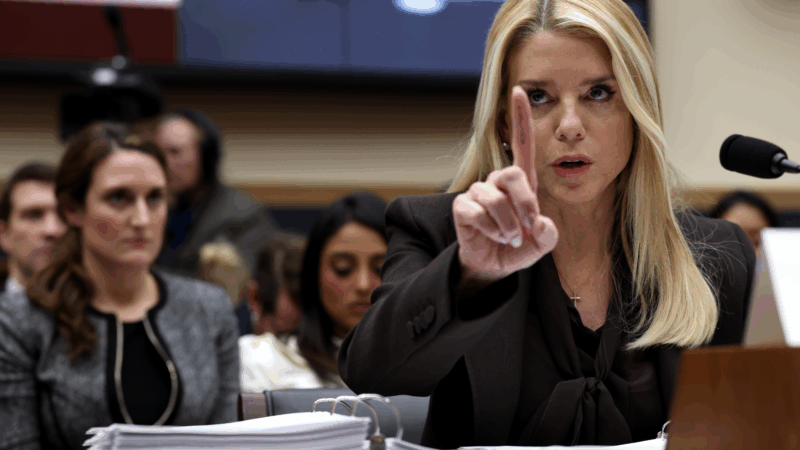Legal complaint claims Alabama discriminates when distributing sewage infrastructure funds
A sign welcomes visitors to Lowndes County in White Hall, Alabama. The U.S. Department of Justice opened an environmental justice investigation in November 2021 into the Lowndes County Health Department, along with the Alabama Department of Public Health, for their wastewater disposal and infectious disease and outbreaks programs.
Alabama has a revolving fund for improving water infrastructure across the state, but only public bodies like towns or county boards can apply for it.
A recent civil rights complaint is looking to change that.
The Center for Rural Enterprise and Environmental Justice (CREEJ) and Natural Resources Defense Council (NRDC) filed a Title VI Civil Rights Act complaint against the Alabama Department of Environmental Management (ADEM) and the State of Alabama on March 6. The environmental groups are represented by the Southern Poverty Law Center.
The agencies argue that how the state distributes funding for wastewater infrastructure hurts Black communities. Many residents in Alabama’s Black Belt aren’t connected to a centralized sewage utility, so they struggle with poor sanitation systems and raw sewage spilling into their yards. But the state’s Clean Water State Revolving Fund doesn’t allow individuals to apply for its low-interest loan program for infrastructure improvements.
“It’s impacting water quality and it’s causing disease potentially everywhere,” said Catherine Coleman Flowers, founder of CREEJ. “We all have to find ways in which to solve this problem.”
Flowers said she hopes the EPA accepts the center and NRDC’s complaint and opens an investigation. She sees the growing national conversation around environmental justice as a way to push for policy change.
The complaint is the natural extension of a decades-long effort to bring attention to rural communities, like Lowndes County, Alabama. In late 2021, the U.S. Department of Justice opened a civil rights investigation against the county and state health departments to see if they discriminated against Black and poor residents. Flowers hopes that the additional money states can receive with the Bipartisan Infrastructure Bill can be used to get people the money they need to fix these longstanding septic systems issues.
“That’s our purpose, is to have a more equitable process because the state of Alabama has never allowed this to happen,” Flowers said.
The ADEM strongly disagrees with CREEJ and NRDC’s statements about discriminating against disadvantaged communities.
“Statements in the Natural Resources Defense Council press release by the council and the Center for Rural Enterprise and Environmental Justice are factually incorrect and baseless,” the agency said in a written statement responding to the announcement of the complaint.
ADEM said that in 2022, 34%, or $157 million, of its $463 million of drinking water and wastewater funding went to Black Belt counties. In response to how it determines loan and principal forgiveness eligibility, the agency said federal audits found it in compliance with all federal requirements, including discrimination laws.
In August, the EPA and the U.S. Department of Agriculture launched a wastewater access gap initiative in Alabama’s Lowndes and Greene counties to provide resources for wastewater improvements to historically underserved communities.
“A lot of these communities, these are poor communities or communities of color that are impacted by these infrastructure issues along with other environmental justice issues,” Flowers said.
There is a crossover between Alabama’s issues and other water infrastructure problems across the region. The water crisis in Jackson, Mississippi was a “tsunami that’s been building for a number of years,” Flowers said.
In late September, the EPA opened the new Office of Environmental Justice and External Civil Rights. Just days after the announcement, the NAACP filed a similar Title VI complaint arguing the state of Mississippi had discriminated against the city of Jackson when it came to providing federal funds for its water infrastructure. The complaint said it hurt Jackson’s largely Black population and contributed to the city’s water crisis.
“We’re hoping that the work that we do in Alabama could also have some positive impact on what happens in Jackson, in other parts of the country as well,” Flowers said.
This story was produced by the Gulf States Newsroom, a collaboration between Mississippi Public Broadcasting, WBHM in Birmingham, WWNO and WRKF in Louisiana and NPR.
Sweet redemption for Mikaela Shiffrin, who wins Olympic gold
Third race is the charm for Shiffrin, who won gold today after failing to podium in her first two races of the 2026 Olympic games.
Ogden, Schumacher grab silver for U.S. in Olympic cross-country team sprint, Diggins falls short
U.S. cross-country skiers Ben Ogden and Gus Schumacher power to a silver medal in the men's team sprint. U.S. women led by Jessie Diggins finish off the podium.
The Justice Department is not acting like it used to, criminal defense lawyers note
Criminal defense lawyers are tracking when the Justice Department appears to rely on irregular charging practices, including aggressive legal theories and possible political retribution.
This form of mental exercise may cut dementia risk for decades
A study finds that people who did one specific form of brain training in the 1990s were less likely to be diagnosed with dementia over the next 20 years.
Surprise four-legged Olympic competitor wows cross-country fans
Nazgul sprints on course at cross-country ski race, crossing finish line in unsanctioned quest for glory
Meta CEO Mark Zuckerberg to face jury in landmark social media addiction trial
The case is seen as a test of social media's legal responsibility for platform design features that plaintiffs' lawyers say exacerbated mental health issues in young people.








